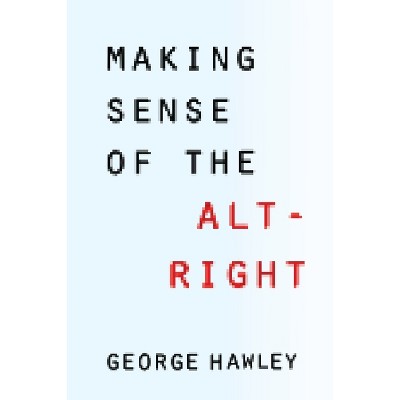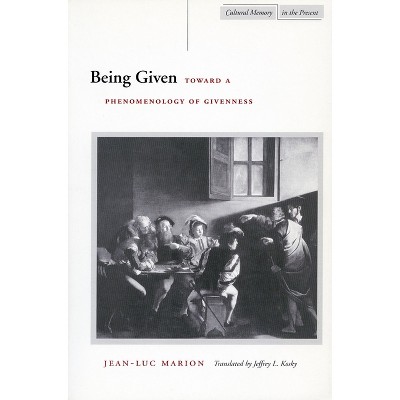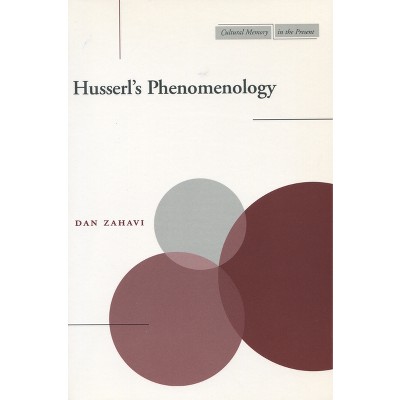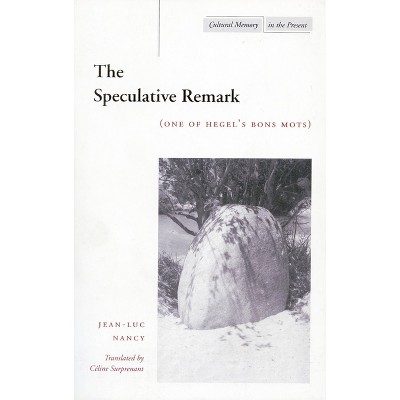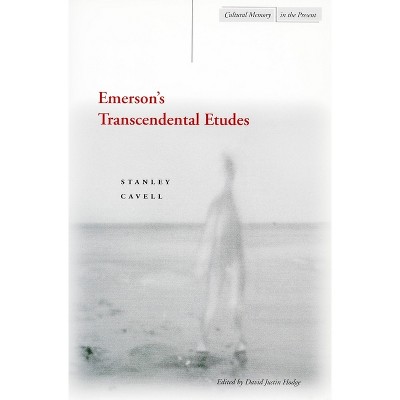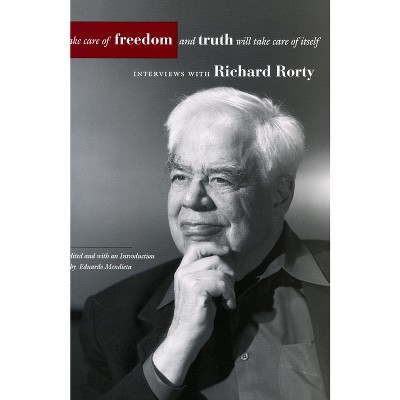Sponsored

World and Life as One - (Cultural Memory in the Present) by Martin Stokhof (Paperback)
In Stock
Sponsored
About this item
Highlights
- This book explores in detail the relation between ontology and ethics in the early work of Ludwig Wittgenstein, notably the Tractatus Logico-Philosophicus and, to a lesser extent, the Notebooks 1914-1916.
- About the Author: Martin Stokhof is Professor of the Philosophy of Language and Scientific Director of the Institute for Logic, Language, and Communication at the University of Amsterdam.
- 352 Pages
- Philosophy, History & Surveys
- Series Name: Cultural Memory in the Present
Description
About the Book
This book explores in detail the relation between ontology and ethics in the early work of Ludwig Wittgenstein, notably the Tractatus Logico-Philosophicus and, to a lesser extent, the Notebooks, 1914-1916. Requiring no prior knowledge of Wittgenstein's thought, it is the first book-length argument that his views on ethics decisively shaped his ontological and semantic thought.Book Synopsis
This book explores in detail the relation between ontology and ethics in the early work of Ludwig Wittgenstein, notably the Tractatus Logico-Philosophicus and, to a lesser extent, the Notebooks 1914-1916. Self-contained and requiring no prior knowledge of Wittgenstein's thought, it is the first book-length argument that his views on ethics decisively shaped his ontological and semantic thought.
The book's main thesis is twofold. It argues that the ontological theory of the Tractatus is fundamentally dependent on its logical and linguistic doctrines: the tractarian world is the world as it appears in language and thought. It also maintains that this interpretation of the ontology of the Tractatus can be argued for not only on systematic grounds, but also via the contents of the ethical theory that it offers. Wittgenstein's views on ethics presuppose that language and thought are but one way in which we interact with reality.
Although detailed studies of Wittgenstein's ontology and ethics exist, this book is the first thorough investigation of the relationship between them. As an introduction to Wittgenstein, it sheds new light on an important aspect of his early thought.
From the Back Cover
This book explores in detail the relation between ontology and ethics in the early work of Ludwig Wittgenstein, notably the Tractatus Logico-Philosophicus and, to a lesser extent, the Notebooks 1914-1916. Self-contained and requiring no prior knowledge of Wittgenstein's thought, it is the first book-length argument that his views on ethics decisively shaped his ontological and semantic thought.The book's main thesis is twofold. It argues that the ontological theory of the Tractatus is fundamentally dependent on its logical and linguistic doctrines: the tractarian world is the world as it appears in language and thought. It also maintains that this interpretation of the ontology of the Tractatus can be argued for not only on systematic grounds, but also via the contents of the ethical theory that it offers. Wittgenstein's views on ethics presuppose that language and thought are but one way in which we interact with reality.
Although detailed studies of Wittgenstein's ontology and ethics exist, this book is the first thorough investigation of the relationship between them. As an introduction to Wittgenstein, it sheds new light on an important aspect of his early thought.
Review Quotes
"This is an outstanding book. Owing to its broad and balanced scope, I know of no better book on the Tractatus. It is unique in covering in depth both the ontological-technical aspects and the ethical parts of that work."--Göran Sundholm, Leyden University
About the Author
Martin Stokhof is Professor of the Philosophy of Language and Scientific Director of the Institute for Logic, Language, and Communication at the University of Amsterdam. He is a co-author of Logic, Language, and Meaning, Volumes 1 and 2, and a textbook (in Dutch) on the philosophy of language.Shipping details
Return details
Frequently bought together



Trending Philosophy






